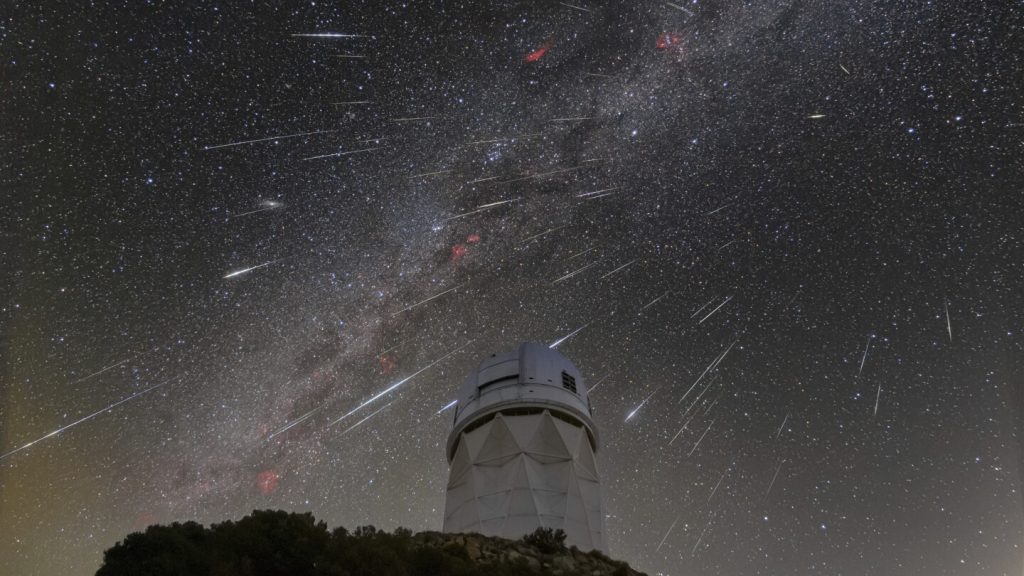The prevailing cosmological model suggests that dark energy, a mysterious force, constitutes approximately 70% of the universe and drives its accelerated expansion. For decades, scientists have theorized that this dark energy is a constant force, seamlessly integrated into the standard model of the universe’s behavior. However, recent findings from the Dark Energy Spectroscopic Instrument (DESI) collaboration have challenged this long-held assumption, introducing a tantalizing twist to our understanding of the cosmos. The DESI project, involving over 900 scientists worldwide, utilizes a telescope located southwest of Tucson, Arizona, to construct a three-dimensional map of the universe spanning 11 billion years. This ambitious endeavor aims to trace the clustering of galaxies across vast stretches of time and space, providing insights into the universe’s evolution and potential future trajectories.
The DESI collaboration’s initial findings, published earlier this year, revealed an unexpected discrepancy. Analyses of galactic movements indicated that the force governing their interactions, presumed to be dark energy, did not appear constant. A subsequent, more comprehensive analysis reinforced this surprising result, raising fundamental questions about the nature of dark energy. Instead of behaving as a constant force, the data suggests that dark energy might be changing or weakening over time. This revelation has profound implications for our understanding of the universe, potentially requiring a reassessment of the standard cosmological model, which hinges on the assumption of constant dark energy.
The implications of these findings are far-reaching, as the behavior of dark energy, the dominant component of the universe, ultimately determines the universe’s fate. If dark energy remains constant, the universe will continue its relentless expansion, becoming increasingly cold and desolate. However, if dark energy is indeed weakening or changing, as the DESI data suggests, it could signal the presence of an entirely different force at play, or perhaps a modification to our current understanding of dark energy itself. This uncertainty has injected a sense of both excitement and perplexity into the field of cosmology, prompting scientists to re-evaluate existing theories and explore alternative explanations.
One possible explanation, gaining traction in light of the new findings, harkens back to an older theory. It proposes that the universe’s expansion and galactic clustering over billions of years have followed the predictions of Einstein’s general relativity. This theory, a cornerstone of modern physics, describes the interplay of gravity, space, and time. If this interpretation holds true, it suggests that dark energy may not be the constant force previously envisioned, but rather a dynamic entity evolving alongside the universe itself.
It is crucial to note that the DESI findings, while compelling, are not yet definitive. Scientists emphasize the need for more data to confidently overturn a theory that has long appeared consistent with observations. Confirmation or refutation of these initial findings will require further observations from other telescopes and continued analysis of the accumulating DESI data over the next several years. The scientific community eagerly anticipates these future investigations, which will ultimately determine the validity of the current dark energy paradigm.
The question of dark energy’s nature holds immense significance for cosmology. Its behavior dictates the universe’s ultimate destiny. A constant dark energy leads to a perpetually expanding, ever-cooling universe. However, a strengthening dark energy could accelerate this expansion to such an extreme that the universe ultimately tears itself apart in a catastrophic event known as the Big Rip. While such a scenario remains a distant possibility, the implications are profound, highlighting the importance of unraveling the mysteries surrounding dark energy. The quest to understand this elusive force continues to drive scientific inquiry, pushing the boundaries of our knowledge about the universe and its ultimate fate.

